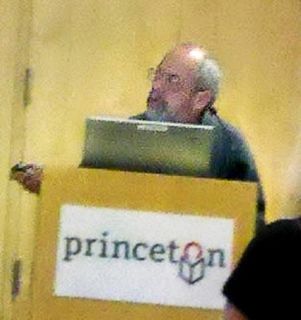A Quote by Anne Applebaum
Global pandemics, cyberwarfare, information warfare - these are threats that require highly motivated, highly educated bureaucrats; a national health-care system that covers the entire population; public schools that train students to think both deeply and flexibly; and much more.
Related Quotes
You don't have any other society where the educated classes are so effectively indoctrinated and controlled by a subtle propaganda system - a private system including media, intellectual opinion forming magazines and the participation of the most highly educated sections of the population. Such people ought to be referred to as "Commissars - for that is what their essential function is - to set up and maintain a system of doctrines and beliefs which will undermine independent thought and prevent a proper understanding and analysis of national and global institutions, issues, and policies".
On the information technology side, health care is still behind other industries. There needs to be a real push to create better electronic health records, more inter-operability amongst various types of electronic systems and cybersecurity is becoming a huge deal in in health care. Health care records are highly sought after by virtue of the fact that not only do you have somebody's person financial information, you also have their person medical information.
Most of the people who make decisions about global health are in the U.S. and Western Europe. There, the mental health care system is dominated by highly trained, expensive professionals in big hospitals, who often see patients over long periods of time. This simply can't be done in rural Africa or India. Who the hell can afford that kind of care?
Apparently almost anyone can do a better job of educating children than our so-called 'educators' in the public schools. Children who are home-schooled by their parents also score higher on tests than children educated in the public schools. ... Successful education shows what is possible, whether in charter schools, private schools, military schools or home-schooling. The challenge is to provide more escape hatches from failing public schools, not only to help those students who escape, but also to force these institutions to get their act together before losing more students and jobs.
Once a nation's population becomes prosperous and secure, for example through economic security and universal health care, much of the population loses interest in seeking the aid and protection of supernatural entities. This effect appears to be so consistent that it may prevent nations from being highly religious while enjoying good internal socioeconomic conditions.
The good things at the U.S. health care system are that we have a well-trained labor force, particularly physicians; I don't think any nation trains doctors better. We have the latest technology, simply because we throw so much money at it. We are really technology-hungry in this country. That's a good thing. Our system more treats patients like customers, which is a good thing; that it's very customer-friendly. And it's very innovative, both in the products we use, in the techniques we use and the organizational structures we use. Those are all very good things, highly competitive.
In comparison to the U.S. health care system, the German system is clearly better, because the German health care system works for everyone who needs care, ... costs little money, and it's not a system about which you have to worry all the time. I think that for us the risk is that the private system undermines the solidarity principle. If that is fixed and we concentrate a little bit on better competition and more research, I think the German health care system is a nice third way between a for-profit system on the one hand and, let's say, a single-payer system on the other hand.
Measles is probably the best argument for why there needs to be global health, and why we have to think about it as a global public good. Because in a sense, measles is the canary in the coal mine for immunization. It is, you know, highly transmissible. The vaccine costs 15 cents, so it's not - you know, shouldn't be an issue in terms of cost.
The Country Doctor Revisited is a fine achievement. Purporting to be an overview of the practice of medicine in rural areas, it is a splendid portrait of the practice of medicine everywhere. The special conditions that prevail in the countryside as opposed to the cities are examined, and each of these is illustrated by a case history that is as compelling as it is informative. It is presented in a highly readable form that would be accessible to the general public as well as to the deliverers of health care. I recommend it most highly.
The other way that you democratize the food movement is through the public school system. If you can pay enough for the school lunch system so that it can actually be cooked and not just microwaved, so that these schools can buy local food, fresh food, because right now it's all frozen and processed, you will improve the health of the students, you will improve the health of the local economy, and you will have better performing students.
































